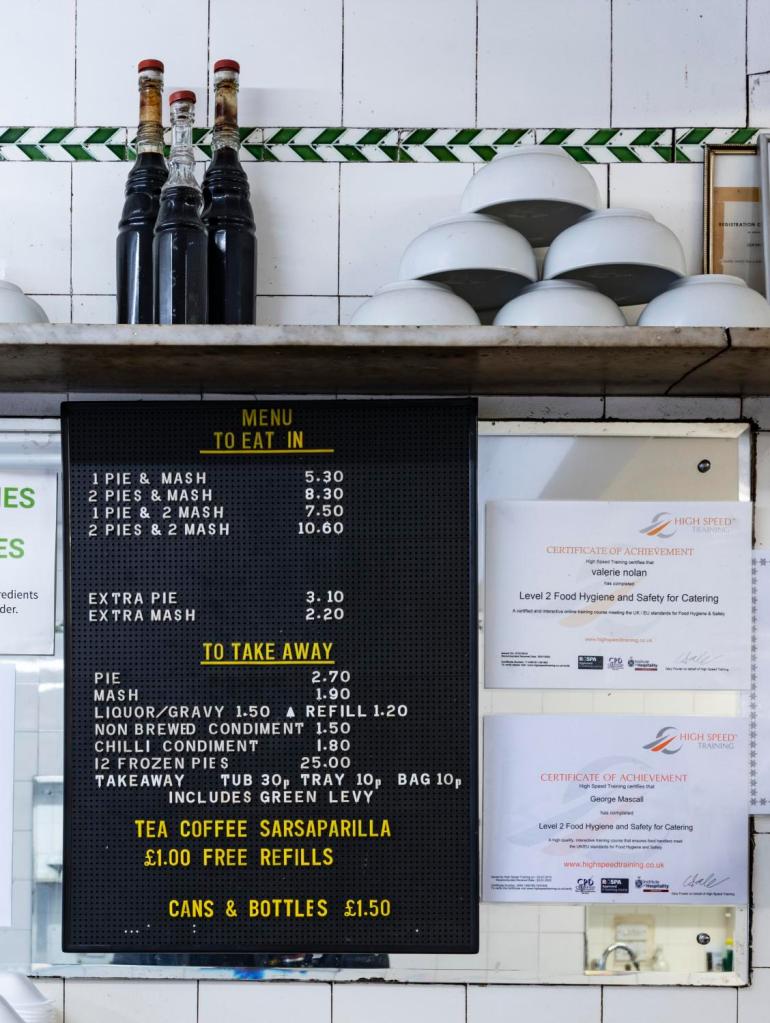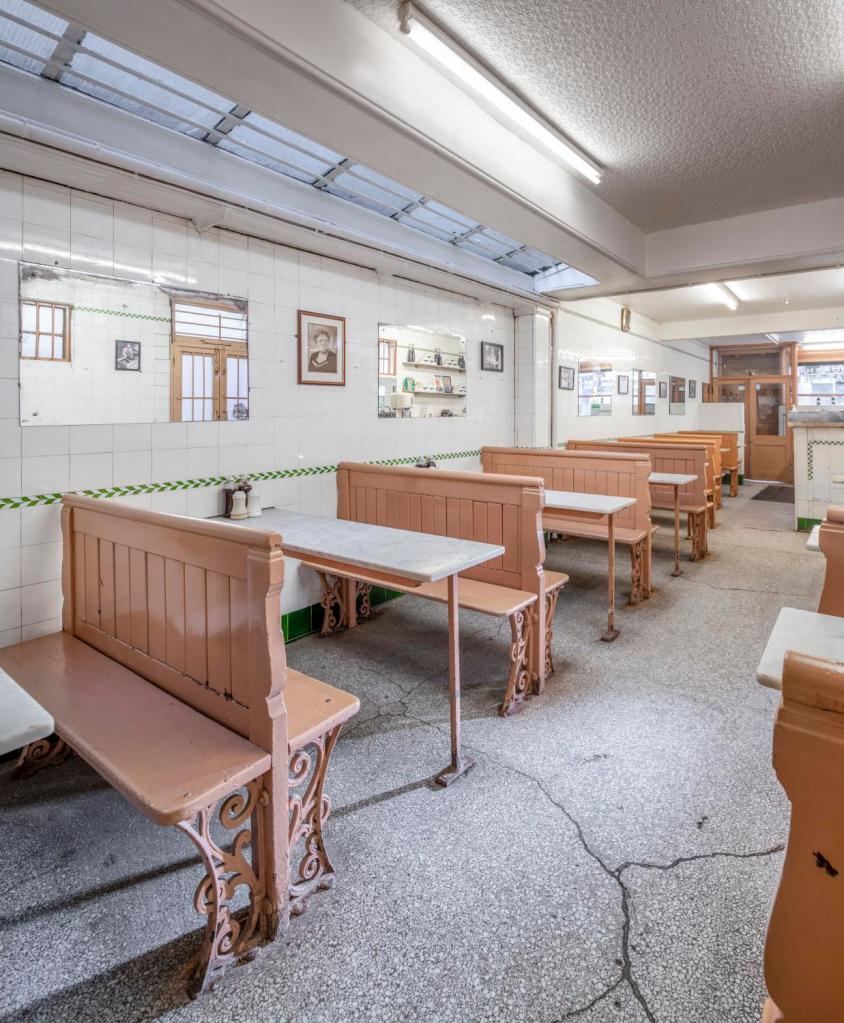Recently in Spectator Life Rob Crossan laid bare ‘the unpalatable truth about British food’ – namely that it is, er, in some establishments he’s been to, done badly. Leaving aside the fact he’s looking for his fish and chips in the wrong place (outside the M25 it wouldn’t be such a struggle), encountering a few dodgy versions of British fare is not a good reason to sit idly by and allow our culinary heritage to disappear. British food can compete with the world’s best – if we allow it to.
In many ways we have had to develop a thick skin when it comes to the loss of treasured bastions of food and drink. Time-honoured institutions forever seem to be just about keeping their heads above water, or indeed vanishing without trace (Rex Whistler, The Gay Hussar and Le Gavroche, for example). Even in London, a city of boundless appetites, in the past couple of months alone we’ve had to face up to the planned closure of the ancient Smithfield and Billingsgate markets. The Sekforde in Clerkenwell is at risk of being shut down over ‘women talking at the top of their voices’, while an impasse with its landlords continues to leave Simpson’s Tavern – Dickens’ favourite chophouse – boarded up and resembling a crime scene.
Can you imagine the French allowing Gâteau opéra to become extinct because ‘it’s a Paris thing’? Or the Italians letting all the pizzerias in Naples go bust?
The only crime in fact is that, while we flock to the many brilliant new openings, we so often fail to save venerable institutions that find themselves in the soup. But the latest travesty – M. Manze’s 110-year-old pie and mash shop in Deptford shut for good at the weekend – is especially sad because it is clear these ‘eel and pie houses’, as they were traditionally known, are approaching extinction territory.
In 1930 there were 14 stores in London bearing the Manze name. Today just three remain, at Tower Bridge, Peckham and Sutton. Other famous pie-and-mash names have gone the same way: A.J. Goddard, also in Deptford, shut in 2018 after 128 years; F. Cooke left the East End in 2022, relocating to Essex (an employee noted that locals in its original location now ‘just want lattes and paninis’). Their Chelmsford branch dished out the good stuff for a few years but has now become an events venue. That leaves one last branch in Romford which survives, for now. London still had 80 traditional pie houses in the mid-1990s; only some 20 are left today.
Pie and mash shops are particular to the capital: a Cockney staple since the Victorian era, meant as affordable fare for the city’s working classes. Today, their classic hot stewed and jellied eels are less sought-after (though they remain on the menu). More popular are the minced beef suet pastry pies, freshly baked each day in the traditional stone ovens and served with plentiful mash and lashings of parsley liquor. £5.30 for the lot, eaten in. It only needs a good shake of chilli vinegar to complete the experience.

And the fact that these pie shops are largely limited to London is no less reason to save them. Can you imagine the French breezily allowing Gâteau opéra to become extinct in the 9th arrondissement where it was invented because ‘it’s a Paris thing’? Or the Italians letting all the pizzerias in Naples go bust? That is not to say it’s sustainable to shower establishments with state subsidy. It is just a reminder that we should give these places a little custom if we like the food and like what they represent – that is, a link with our past and evidence that we have in this country as much culinary history and heritage as anywhere else on Earth.
We are better at protecting bricks and mortar than our consumable cultural heritage. The Deptford branch of Manze’s – with its green-painted timber facade and interior of terrazzo floors, white tiled walls and timber benches – is safeguarded by a Grade II listing. But preserving a building doesn’t stop something being lost when trendy new incumbents take over. The old Manze store in Hackney is now a purveyor of bespoke eyewear.

As Rob Crossan reported, MPs recently backed a motion, proposed by Conservative MP Richard Holden, for pie and mash to get traditional speciality guaranteed (TSG) status, just like Gloucestershire Old Spots pork and Bramley Apple Pie filling. To qualify for the TSG label, a food’s ingredients and production must be ‘traditional’ and it must be of ‘specific character’. Of course it’s true that a TSG label won’t on its own save the pie and mash shop, or anything else. But it might at least help engender more national pride in the bounty within our shores, and coalesce more of an effort to safeguard it when threatened.
No one is suggesting obsessively insisting on only one ‘designated’ way to make pie and mash (I refer you to my recipe for chicken tikka masala pie). Brits are not as dogmatic as that. The shops themselves have innovated to try to appeal to new customers. They even sell vegan pies (and on Deliveroo). They have done their bit to keep up with times – even though much of their charm lies in the ways they hold out against changing tides.
Shifting demographics don’t help of course, but the enduring popularity of other East London culinary institutions – Brick Lane Beigel Bake, and old-school caff E. Pellicci – is proof that with a good product and a little love these places need not bite the dust. A champion would be handy: if David Beckham, often seen tucking in at a pie house near his Leytonstone birthplace, could save pie and mash in a final act of service to the nation it might finally earn him the long-coveted knighthood.
I first discovered pie shops aged 15. With unlimited £1 daily Tube travel I set off each morning of the school holidays to roam the city, Peter Ackroyd’s seminal biography of London tucked under my arm. Ackroyd compared the city to an ‘organism which sloughs off its old skin, or texture, in order to live again. It is a city which has the ability to dance upon its own ashes’.
But not every bit of skin should be shed. And we shouldn’t allow important parts of our culinary heritage to turn to ashes. These places deserve our custom, or they won’t be around for long.







Comments